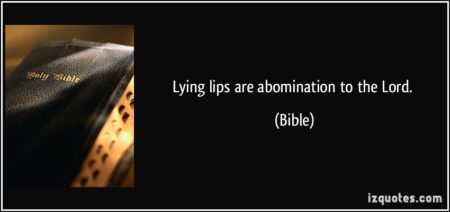I’ve heard it preached repeatedly that we can’t give God anything but our best. Deuteronomy 17:1 is used as a reason for this. But that passage isn’t talking about giving less than the best for sacrifices. It says nothing about seeking out the very fattest and best lamb, it just says not to give one that is blemished or obviously disfigured. It appears to be talking more about deliberately giving an unworthy sacrifice. Going to the herd and finding an animal not worth keeping and killing it. At any rate, it isn’t talking about beating ourselves over the head, losing sleep over whether we could have done anything better that day or not.
Of all of these, all but Deuteronomy 22:5 obviously discuss things spoken against in the 10 Commandments and again in the New Testament by Jesus and by the writers of the Epistles.
Food laws were reversed in Peter’s vision “what I have made clean call thou not common.” Gentiles were also made clean in this vision and the activities in Acts 10 that followed. What else was considered ‘clean’ at that point? What does Deuteronomy 22:5 really mean? Does it stand alone as saying women shouldn’t wear pants? Hardly. It is part of the blended gender issue that is defined as sexual immorality. There is nothing sexually immoral, nothing about blending genders, determined by ladies wearing pants.
What things were abominable in the Bible?
In the Old Testament, certain foods (Lev 11), homosexual acts (Lev 18:22), idols (Deut 7:25, 12:31, 13:14), dishonorable sacrifices (Deut 17:1), mixing genders (Deut 22:5), cheating in business practices (or possibly favoring some people and cheating others) (Deut 25:16, Prov 11:1, Prov 20:10), frowardness (Prov 3:32), Prov 6:16 and 12:22 and 16:5, Justifying the wicked and condemning the just (Prov 17:15), Jer 6 and 8, Ez 18:12, sexual immorality Jer 22:11, were an abomination. Why pull out only Deuteronomy 22:5? Why are the others not preached often as abomination?



